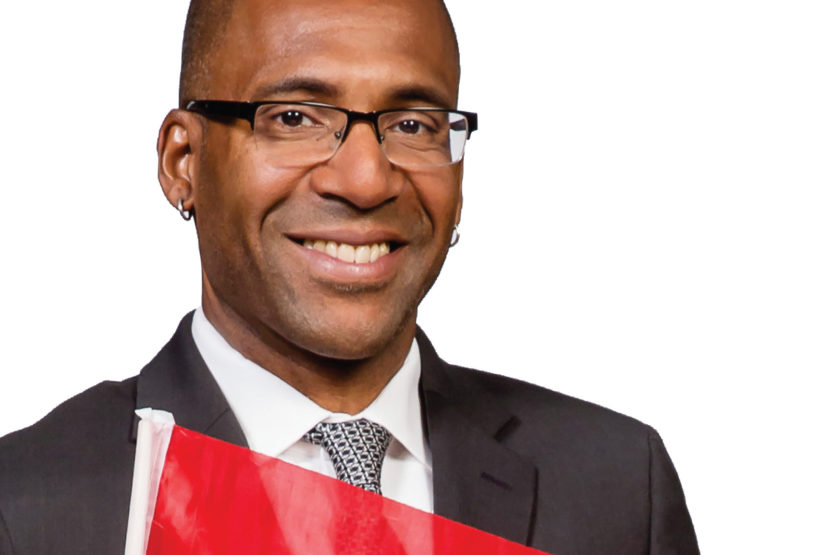In Class: Black history matters
 African American scholar Erik McDuffie. (Image by L. Brian Stauffer)
African American scholar Erik McDuffie. (Image by L. Brian Stauffer) History is a study of change over time and space. I try to impress upon my students that we are all standing on the shoulders of those who came before us. With Ferguson, Mo., yes, some new things have happened. At the same time, African American struggles against the police—police brutality, state violence—are nothing new.
In terms of black people, you can’t just talk about racism. You have to talk about gender. You have to talk about sexism. You have to talk about class. You have to talk about homophobia. And how these forces play out and affect black people.
Last fall I taught AFRO 383, The History of 20th Century Black Women’s Activism. We look at black women’s involvement in the Marcus Garvey movement, the church, the women’s clubs, the Civil Rights and Black Power movements, right up to Black Lives Matter. We challenge prevailing ideas. Like that Rosa Parks was some tired old lady who randomly sat down on a bus one day. Parks was a long-time activist, and her decision to sit down on that bus was part of a coordinated effort by black folks in Montgomery, Ala., to challenge segregation.
My new book looks at the Marcus Garvey movement in the Midwest. Marcus Garvey led the largest global black movement in history. At its peak, in the early 1920s, the movement claimed 6 million members worldwide. Garvey called for the freedom of Africa from European and foreign rule. He called for an autonomous, black global economy. Garvey—and he wasn’t the first—argued that God was black. Have you seen the red, black and green flag of African American protest? That flag was Garvey’s invention. He said that every free nation on earth had a flag except for black people, and that he would create a flag.
Yesterday in class, I played Dr. Martin Luther King’s “Why I Am Opposed to the War in Vietnam” speech, which he gave on April 30, 1967, at Ebenezer Baptist Church, his home church in Atlanta. I asked students, “How many of you have ever heard this speech before?” One person, out of a class of 36 students, raised her hand. Basically, Dr. King’s opposition to the Vietnam War has been erased.
This past fall, I was talking about “rape frame-up” cases of the 1950s. I was talking about the case of Willie McGee, an African American man. He was accused of rape, sentenced to death, and ultimately, in 1951, electrocuted in Laurel, Miss.
During Spring Break, I went to the courthouse in Laurel to see where McGee was executed. Of course, there’s no plaque or anything like that. There’s a Confederate veterans memorial and, of course, the state flag with the Confederate battle flag. I went there to pay respects to Willie McGee. But I also wanted to see the place, and share this experience with my students. We had an incredible conversation, not only about what happened, but about the erasure of all that history. Why is it that we don’t know anything about this?
Edited and condensed from an interview conducted on April 11, 2017.


